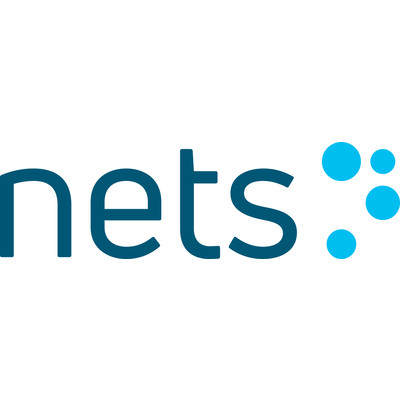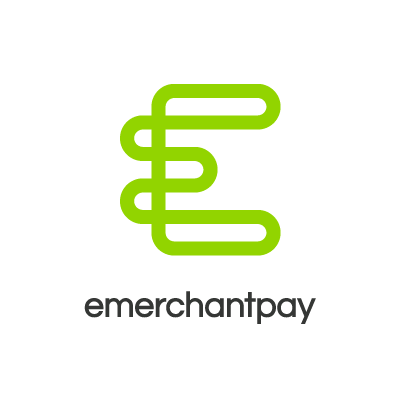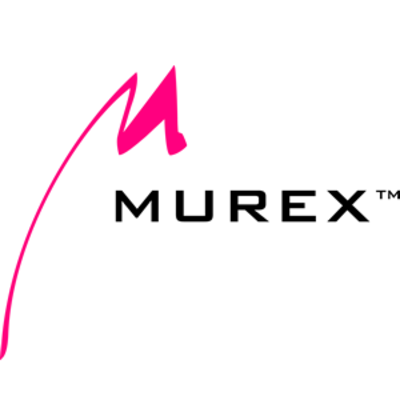Published
- 04:00 am

Edge has won “Best Edge Computing Platform” in the IoT Innovation category at the Future Digital Awards 2019. The award was given following a thorough judging process undertaken by the analyst team at digital research consultancy Juniper Research.
Juniper judged award entrants on a number of elements, specifically: Product Features and User Benefits; Product Innovation; Commercial Partnerships; Commercial Launches; Compliance & Certification; and Future Business Prospects.
The key strengths and advantages of Edge noted by the judging panel were:
· Overall effect of increasing speed and efficiency in a wide range of applications.
· Use of blockchain in edge computing.
· 7 established B2B partners.
· Network coverage in 60+ countries.
· The fact that anyone with a laptop, mobile or any connected device can earn $EDGE tokens by supplying spare computational and storage capacity to the network. The panel believe this idea is unique and innovative.
· This is a prime product, as Juniper Research expects 5G and edge to increase massively in the coming years especially within sectors such as smart manufacturing and smart cities.
· The business model leverages existing connected devices to provide computational power that can be monetised was seen as a huge plus.
· Despite a lack of standards, the key strength here is the solution uses most connectivity standards.
· Edge is open to partnerships with anyone who has a device.
Joseph Denne, CEO and Co-Founder of Edge Network said:
“It is a testament to the hard work of the team here at Edge that we have won ‘Best Edge Computing Platform’ in this year’s Future Digital Awards and we are delighted to have been recognised by this award win. With edge computing expected to be a significant emerging technology, we see ourselves as a first mover in the space. Over the next few years we envisage our network growing well beyond the current 271 nodes, with 45 going live in the first week that we started self-boarding in September 2019, leading to a truly global, scalable and secure edge computing network.”
Elson Sutanto, Principal Analyst at Juniper Research said:
“Edge was an outlier when it came to judging this category, mainly due to their network being live in production and already allowing people to monetise their spare computing capacity. Along with IoT, 5G and blockchain, we see edge computing as a key emerging technology of the future.”
Related News
- 04:00 am

InstaReM, the Singapore-headquartered digital cross-border payments provider has launched its services in Canada, solidifying its presence in North America. InstaReM offers quick, convenient, and cost-effective digital cross-border money transfers to individuals and businesses globally.
InstaReM is registered as a Money Service Business with the Financial Transactions and Reports Analysis Centre of Canada (FINTRAC) to remit and transmit funds out of Canada. The launch of the digital money transfer service will help individuals and businesses in Canada to send money to over sixty countries, including the UK and the US, with InstaReM’s Zero-Margin and Low-Fee international money transfers. Customers save substantially with InstaReM when compared to money transfers using traditional channels such as banks and money transfer companies.
Canada is one of the leading remittance-sending countries in the world, which is attributed to the large expat population from different parts of the world. In 2017, as much as US$24.6 billion was sent out of Canada in remittances with countries like China (US$4.14 bn), India (US$2.88 bn), Philippines (US$2.37 bn), France (US$1.23 bn) and Italy (US$1.07 bn) being the top recipients, according to the World Bank. According to Statistics Canada, the average cost of sending money from Canada from the available channels including banks and money transfer companies was around 6% of the amount sent.
InstaReM offers live mid-market FX rates and charges just 0.50% to 1% of the amount sent, which makes it one of the most cost-effective money transfer service in Canada. Registered users in Canada can utilise this service at their convenience with InstaReM’s user-friendly website or the mobile app.
Prajit Nanu, Co-Founder and CEO of InstaReM said:
“At InstaReM we’re committed to giving people the platform to use their money their way and after launching successful operations in some of the high-traffic corridors in the Asia-Pacific, European Union and the United States, we are thrilled to arrive in Canada. Our innovative payments solutions enable individual and enterprise users to send, spend and collect money to and from any part of the world – while saving on high transaction costs that are associated with traditional cross-border money movements.”
InstaReM is one of the largest digital cross-border payments providers globally, with regulatory licenses in eight markets and covering 40 countries, reaching 3.2 billion people in developed and developing countries. InstaReM is consistently ranked by the World Bank as the lowest cost operator in a number of corridors in Asia-Pacific.
Related News
- 07:00 am

Klarna and Mothercare have today announced an extension of their current payments partnership, which will see Klarna’s Pay later, Pay in 3, and Slice it (0% interest) products available online and in-store across the UK.
The partnership offers new convenience for Mothercare shoppers, as Klarna’s smooth and easy payment options are available online for the first time. Parents searching for cots, clothing or car seats, can now sleep easy — or try to — knowing they have the option to pay for items later, or in instalments.
The announcement comes as Klarna continues to grow rapidly in the UK and globally, with Mothercare joining Klarna’s impressive list of partners. The leading mother and baby specialist is also one of the first to offer the in-store solutions, which launched earlier this year.
Through flexible payments, Mothercare hopes to make its products more accessible for new and current parents, offering a peace of mind when shopping for their new arrival. Klarna’s easy payments are designed to heighten the customer experience and drive customer acquisition for Mothercare and retailers alike, as they focus on future growth and expansion.
Luke Griffiths, General Manager at Klarna UK, commented on the partnership: “With new arrivals, parents are already being kept awake at night and we believe that finances shouldn’t be an added factor. The freedom and flexibility our products offer is perfect for new parents who don’t necessarily have the luxury of spending whenever they need to – especially when it comes to big purchases, like pushchairs.
“Mothercare’s dedication to its customers is inspiring, and the introduction of our payments both online and in-store just shows their continued focus on providing the best experience for their shoppers.”
Donna Storey, Global Digital & Marketing Director added: “From pushchairs to babygrows, sometimes little ones need things that just can’t wait until payday. We wanted to partner with a business that could help us give families more control over how and when they pay, but also make the shopping experience smoother and less stressful. Klarna was the obvious choice for us as the market leader in payments and experience. We can’t wait to see how our customers respond to the new products, knowing it will help make their lives just that little bit easier.”
Related News
- 08:00 am

Nets, a leader in the European payments industry, has collaborated with multinational professional services provider, KPMG, to develop Nets Fraud Ensemble, a next-generation fraud monitoring and prevention solution.
As the total annual value of fraudulent transactions across Europe hits €1.8 billion, the need to step up fraud prevention, particularly in card not present (CNP) transactions, has never been greater. Reducing transaction fraud is an increasingly convoluted and nuanced business, however, as factors such as the mass adoption of e-commerce, increasing cross-border payments, and the growing popularity of new digital payment methods combine to add new layers of complexity.
Nets Fraud Ensemble is an AI powered anti-fraud engine that assists fraud prevention teams to navigate this ever-changing landscape in real time. By deploying true machine learning (i.e. a system that identifies emerging fraud indicators as well as established patterns), it represents a significant step forward from the rules-based models that are currently in use across the international banking industry.
Sune Gabelgård, Head of Digital Fraud, Intelligence & Research, Nets, comments: “Although initiatives such as 3D-Secure have done much to make it more secure for people to shop online across Europe, the industry still faces challenges. Many issuing banks have focused on fraud prevention through consumer education, but the industry must also tackle the problem where it starts and where it is orchestrated by organised criminal enterprises: on the internet.
“Nets has significant and proven capabilities in fraud monitoring and prevention, and has been utilising AI in this area for several years. Nets Fraud Ensemble takes this to the next level. It brings security and value to issuers, merchants and cardholders by blocking fraudulent card-present and card-not-present transactions in real time, creating a real societal benefit by keeping illegally obtained funds out of the hands of criminals. We look forward to our continued collaboration with KPMG to stay ahead of the curve and prevent fraud throughout the value chain.”
The ‘brain’ of Nets Fraud Ensemble consists of multiple models working together to analyse each individual transaction within ten milliseconds – the time frame in which a transaction can be safely blocked. The solution learns from the results of its analysis and adjusts accordingly, meaning the longer that it is operational the more fraudulent transactions are blocked, and the fewer false positives are granted. In initial pilot programmes, it reduced fraudulent payments by 25% within weeks and up to 40% in the long-term.
The benefits to issuers extend beyond achieving significant reductions in fraud. Nets Fraud Ensemble also decreases operating costs and chargebacks, creating an improved cardholder experience. Furthermore, to balance accuracy with customer convenience, issuers can implement customised decision thresholds to minimise false declines.
Related News
- 01:00 am

Performance is set to become the next big battleground within the payments industry, as businesses in all sectors look to enhance customer experience and increase margins in response to market disruption and increased competition.
Research from emerchantpay reveals that as many as 85% of payments leaders predict that a greater focus on payments performance (including tools, analytics, skills and investment) over the next two years will increase their organisation’s revenues by between 1% and 10%.
Within some sectors, the potential impact of improved payments performance is even greater. 89% of payments leaders in the travel sector and 88% within retail expect to see revenue increases of up to 10% as a result of increased performance.
The Performance Pulse white paper identifies the number and variety of steps that payments leaders are looking to take to improve performance across all areas of their payments infrastructures. At the top of the list is minimising the number of steps in the payment user journey across multiple touchpoints, cited by 93% of payments leaders as having a significant impact on performance. This is followed by action to reassure customers around security and encryption on payment pages (92%), consolidating international payment providers (88%), incentivising payments teams around improved efficiency (88%) and optimising Merchant Category Codes (MCCs) to increase authorisation rates (87%).
New technology is also seen as an important catalyst for improved payments performance and, therefore, increased revenue. More than three quarters (78%) of payments leaders believe that deploying AI within payments systems will drive improved performance.
When it comes to measuring and evaluating payments performance, the most widely used metric is growth rates (deployed by 64% of organisations), followed by operational costs (46%), acceptance rates (43%), impact in revenue and profitability (39%) and conversion rates (37%). Other metrics include instances of fraud or impact of fraud and customer satisfaction.
However, the research reveals a disconnect between the organisational drive for greater payments performance and the objectives and focus of those individuals responsible for delivering it. Remarkably, only one in seven payments leaders (14%) has personal and team KPIs that are fully aligned to the KPIs of the wider business and to broader commercial objectives.
Jonas Reynisson, CEO of emerchantpay, said: “These findings really bring home the size of the opportunity for payments leaders to deliver significant commercial and financial results, through a strategic approach to payments performance. It’s evident that more and more businesses are recognising the importance of instilling a culture of payments performance and ensuring that they have the dedicated resources to ensure that performance is monitored, analysed and optimised on a consistent basis across all aspects of the payments eco-system. This means having high quality skills within the payments team, or support from external providers, to analyse, interpret and present data back to the business in a coherent and accessible way.”
The research revealed different priorities in driving payments performance across industries. Within the retail sector, there was a relatively strong emphasis on upskilling payments teams and aligning team objectives and incentives to overall payments performance. Within travel and gaming, the focus was weighted towards minimising steps in the customer journey across multiple touchpoints and, within gambling, there was an inclination towards A/B testing to fine-tune payment page design.
Payments leaders within Forex (foreign exchange) reported the highest expectation levels around the impact of AI on payments performance.
Reynisson concluded: “We need to change the narrative around payments, from a tactical focus around ‘keeping the lights on’, to a strategic, business imperative, where performance is clearly aligned to overall strategic goals and KPIs, and payments teams are measured and incentivised around hard commercial metrics. As an industry, if we can get this right, payments performance will create a platform for payments teams to position themselves as more strategic and high-value functions within their organisations.”
Related News

Lina Andolf-Orup
Senior Director at Fingerprints
The deadline hanging over Europe is finally here. No, not Brexit, but PSD2’s September 14 mandate for the implementation of SCA (or, to those unfamiliar, Strong Customer Authentication). see more
- 09:00 am

Following a competitive selection process, Caisse des Dépôts (CDC), a long-term public investor addressing the general interests and economic development of French territories, has chosen Murex’s MX.3 platform to support its asset management activities from front to back office.
MX.3 is a capital markets platform supporting trading, treasury, risk and post-trade operations. It enables financial institutions to better manage enterprise-wide risk, control IT costs and improve efficiency. Designed to evolve with the market, it includes solutions addressing the latest regulatory challenges and meets local and international market standards.
With a solution for enterprise portfolio management, MX.3 allows financial institutions to consolidate their asset management business on one system, which includes a fully integrated, streamlined back-office and accounting suite. Moreover, MX.3 acts as an enterprise wide market data referential, allowing users to easily validate, select and distribute market data.
In addition to a powerful single platform that provides a complete picture of asset management activities across front, middle and back office, the expertise of the Murex team has received widespread industry recognition. Murex takes a partnership approach, working closely with clients to ensure projects are delivered successfully and to the highest standard.
Jean Gabriel Edde, Partner at Murex adds, “We are delighted to be working with CDC, providing them with the technology and support to meet their evolving needs. A strong partnership has developed during this project and we look forward to collaborating closely with the team at CDC on the next steps of their IT transformation journey.”
Related News
- 09:00 am

Group CFO and Head of Group Finance and Treasury Christopher Rees has decided to relocate back to the UK with his family to pursue new opportunities and will leave Nordea in 2020. A search for a successor has been initiated. Christopher Rees will continue in his role and as a member of Group Executive Management until a successor has been appointed and responsibilities orderly transferred.
Christopher Rees joined Nordea in 2015 in Wholesale Banking where he held several roles including Chief Operating Officer, Head of Markets and Deputy Head of Wholesale Banking. Christopher was appointed as CFO and Head of Group Finance and Treasury in 2018 and has successfully led the Finance and Treasury operations of Nordea and is a valued member of Group Executive Management.
“It has been a pleasure to work with Christopher Rees in Group Executive Management and we will miss him dearly when he leaves in 2020”, says President and CEO Frank Vang-Jensen.
“The entire Board of Nordea respects Christopher Rees’s decision and thanks him for his leadership, commitment and hard work for Nordea and look forward to working with him until his departure in 2020”, says Torbjörn Magnusson, Chair of the Board.
Related News
- 09:00 am

GoCardless, the leading global fintech for recurring payments, will today launch a new solution on its platform supporting debit payments on the ACH (Automated Clearing House) network.
This presents businesses worldwide an opportunity to revolutionise the way they collect funds in a market where 60% of B2B payments are still taken by paper cheques. By using the ACH debit network on the GoCardless platform, merchants can pull payments directly from their customers’ bank accounts, at a lower cost than credit cards and without the overhead and burden of cash and cheques.
In addition, businesses using the GoCardless ACH debit solution will gain increased visibility over their payments flow through a fully automated collection system. This includes a range of information to help them better manage and reconcile their payments including due dates, successful payments and failed payments – along with the reasons why.
By announcing the addition of ACH debit, GoCardless completes its unique global debit network, covering over 30 countries and accessed through a single API and platform.
Hiroki Takeuchi, CEO of GoCardless, says: “Our aim is – and always has been – to help our customers focus on growing their business without worrying about how they’re going to get paid. Adding ACH to the GoCardless platform will give businesses across the globe access to the world’s largest market, helping them unlock new revenue streams.
“With the launch of our ACH solution, we now cover 70% of recurring payments worldwide across more than 30 countries, including the US. We’re excited for our customers to harness our unique global debit network, helping them to drive down costs, reduce failure rates and decrease involuntary churn every time they get paid.”
Expansion into the US debit ‘rails’ marks a significant milestone in GoCardless’ mission to build a global direct debit network on a single platform, and reflects a growing demand for ACH debit. In 2018 – the fourth consecutive year in which the ACH Network added more than one billion new transactions – the system saw 23 billion transactions, of which 13.4 billion were debits.
It is expected that by 2020, ACH will become the most widely used B2B payment method in the US as changing attitudes continue to sweep the nation: 80% of businesses in the US now prefer to receive their B2B payments via ACH debit, whilst 53% of consumers share the same payment preference for recurring bills.
According to research from GoCardless, one in five US customers prefer to pay for subscription services by bank debit, yet only one of the world’s top 44 global subscription companies currently offers the option. This represents a huge opportunity for businesses that can provide alternative payment methods.
Sarah Grotta, Director Debit and Alternative Payments Advisory Service, Mercator Advisory Group, said: “Consumers and businesses have continued to find new uses for ACH payment transactions despite the fact ACH is a forty-year-old, batch-based solution. We find that there is strong growth recently for ACH in bill payments and on-line and mobile payments and also person-to-person (P2P) transactions.
“When making payments, particularly recurring payments for bills or subscription transactions, consumers may not always want to pay with their credit card as they don’t want to run the risk of interest rate charges. Merchants and billers like to encourage the use of ACH as it can be an economical payment choice and bank account details change less frequently than card numbers, reducing the amount of payment maintenance.”
Related News
- 07:00 am

According to research conducted by PCI Pal®, the secure payments provider to contact centres, 44% of Americans, 38% of Brits, 33% of Australians, and 37% of Canadians have been the victim of a data breach.
As a result of the influx in cybercrime, consumers are increasingly aware that they are in no way exempt from data breaches, especially as more people are forced to resolve the short and long term damages caused by an organisation’s weak data privacy practices. In response, consumers around the world are prioritising security and leveraging their spending power to hold businesses accountable:
● In the UK, 44% of consumers claim they will stop spending with a business for several months in the immediate aftermath of a security breach, and 41% of consumers claim they will never return to a business post-breach.
● In the US, 83% of consumers claim they will stop spending with a business for several months in the immediate aftermath of a security breach, and over a fifth (21%) of consumers claim they will never return to a business post-breach.
● In Australia, 43% of consumers claim they will stop spending with a business for several months in the immediate aftermath of a security breach, and 43% of consumers claim they will never return to a business post-breach.
● In Canada, 58% of consumers claim they will stop spending with a business for several months in the immediate aftermath of a security breach, and a fifth of consumers claim they will never return to a business post-breach.
Whether it’s adjusting how much they spend or deciding to avoid the company altogether for several months or even forever, these figures represent significant potential revenue loss that many businesses may not be able to recover from.
The findings suggest that a combination of recent high-profile data breaches in each region, the development of assorted laws and regulations to protect consumer data privacy (e.g. Europe’s General Data Protection Regulations, the California Consumer Privacy Act, Canada’s Personal Information Protection and Electronic Documents Act, Australia’s Consumer Data Right, and others), and personal experience have made security top-of-mind for consumers around the world.
The consumer-facing consequences of a data breach have resulted in consumers reconsidering the safety of common business practices in obtaining data. Consumers in every region expressed concerns about having to read their credit card information over the phone, and many are only comfortable sharing information over the phone with certain companies that they trust:
● In the UK, 55% of consumers are uncomfortable reading their credit card information over the phone and 44% of consumers are only comfortable sharing information over the phone to select companies that have earned their explicit trust.
● In the US, over 40% of consumers are uncomfortable reading their credit card information over the phone and 58% of consumers are only comfortable sharing information over the phone to select companies that have earned their explicit trust.
● In Australia, 49% of consumers are uncomfortable reading their credit card information over the phone and 43% of consumers are only comfortable sharing information over the phone to select companies that have earned their explicit trust.
● In Canada, 42% of consumers are uncomfortable reading their credit card information over the phone and 58% of consumers are only comfortable sharing information over the phone to select companies that have earned their explicit trust.
Consumers also report that when it comes to trust in security practices, not all industries are created equal. The results showed that consumers trusted the retail and travel industries least, with 40% and 35% of UK consumers, 50% and 40% of Australian consumers, 65% and 41% of Canadian consumers , and 19% and 16.4% of US consumers rating these industries as the worst when it comes to security practices.
“With the ongoing introduction of new data privacy regulations around the world, companies face significant fines in the event of a breach,” said James Barham, CEO at PCI Pal. “Our research however shows they may face an even bigger financial consequence in the aftermath of a breach, with the loss of customer loyalty and trust. To avoid such implications, companies should adequately prepare themselves for the increasing likelihood that a data breach will inevitably occur.”









